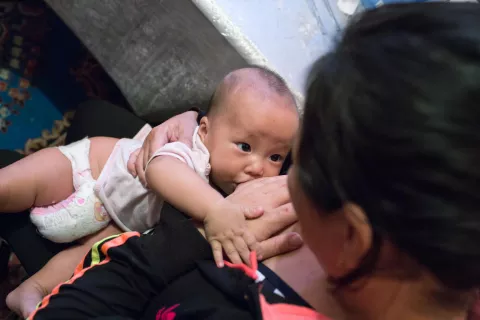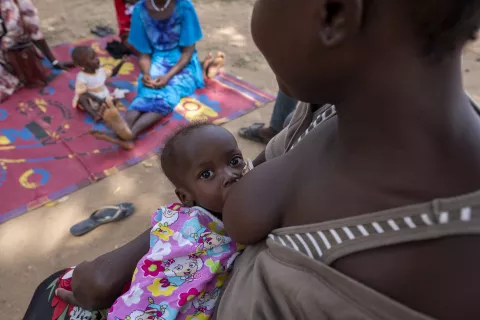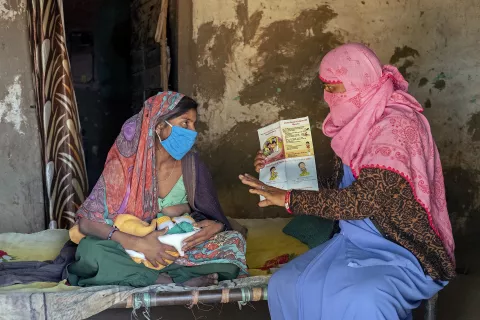New alliance mobilizing to protect breastfeeding
- Available in:
- 中文
- English
BEIJING, August 5, 2010 – Even months before giving birth, Ms. Mei has received free infant formula samples from supermarket salespersons and even her own doctor. Told that formula milk will make her baby healthier and smarter, she is now hesitant whether she shall breast feed her baby.
Mei's concern is echoed by millions of new mothers in China. Chinese mothers say infant formula was promoted and marketed in the hospitals where they gave birth, according to a recent survey released on August 2, during the World Breastfeeding Week (1-7 August).
Low awareness of exclusive breastfeeding, unethical advertising and marketing tactics of some formula producers, and inadequate support from health facilities are blamed for the deprivation of the unmatched benefits that only mothers can offer to their babies.
Breast milk provides the best nutrition for infants and exclusive breastfeeding for the first six months of life (with no water, other liquids or food) is recommended by UNICEF and the WHO. Global health authorities agree that despite inferences to the contrary by formula producers, there is no substitute for the benefits that breast milk provides.
The information mothers receive from healthcare providers exerts a strong influence on their attitudes to breastfeeding. That's why the theme for this year's World Breastfeeding Week is "Just 10 Steps – the Baby Friendly Way", which emphasizes the vital role of health professionals to encourage breastfeeding.
However, according to the 2010 China Market Monitoring Report on Breastfeeding and Breast Milk Substitute, nearly 40% of the surveyed parents said the healthcare facilities gave their personal information to formula companies, and another 40% said sales persons distributed coupons and brochures near or in hospitals.
Dumex, Mead Johnson, BeingMate, Abbott and Wyeth are among the most often mentioned brands advertising their products to parents in health facilities, which violates the International Code of Marketing of Breast Milk Substitutes China has signed.
Many mothers don't realize their baby only needs a small amount of milk at the very beginning. Due to misleading marketing messages, 64.5 percent of new mothers said they gave up breastfeeding because they worried that their breast milk was not enough.
"While the formula producers spend hundreds of millions of dollars in advertising and marketing, the resources available for public advocacy to promote exclusive breastfeeding is comparably inadequate." Mr Dale Rutstein, UNICEF China Communication Chief, said at the survey report launch event. "It is highly encouraging to see this alliance of media, public health, consumer advocates, and others to promote the far-reaching health and social benefits of exclusive breastfeeding."
The national survey was initiated by several newspapers and websites with support from UNICEF, Child Healthcare Cooperation Centre of WHO and China Consumer's Association. A total of 12,923 valid questionnaires were collected from all parts of China over a period of forty days.
Media contacts
About UNICEF
UNICEF works in some of the world's toughest places, to reach the world's most disadvantaged children. Across 190 countries and territories, we work for every child, everywhere, to build a better world for everyone. For more information about UNICEF and its work for children visit www.unicef.org.
| Visit UNICEF China website: www.unicef.cn Follow us on Sina Weibo: http://weibo.com/unicefchina Tencent Weibo: http://t.qq.com/unicef Wechat: unicefchina |




